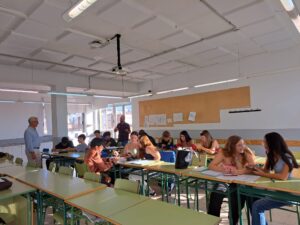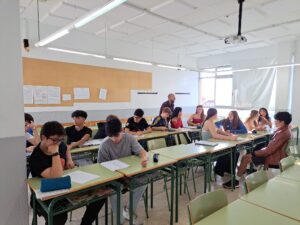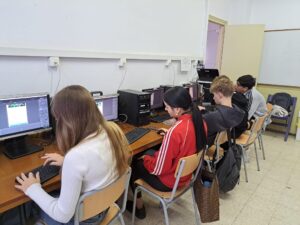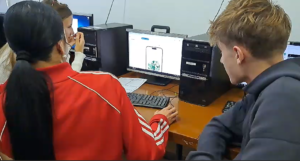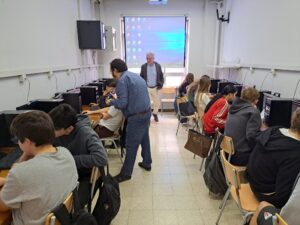High school students from Catalonia contribute to the creation of an app on soil health, as part of the LOESS project
Barcelona, November 5, 2024 — First-year high school students from the Montserrat Institute in Barcelona have concluded today their participation in a series of co-creation sessions dedicated to developing a virtual and augmented reality application (+AR APP) focused on soil health. This initiative is part of the European project Literacy Boost through an Operational Educational Ecosystem of Societal Actors on Soil Health (LOESS), which is part of the European Mission A Soil Deal for Europe.
After a year focused on assessing the level of knowledge about soil health across various educational stages in Europe, the LOESS project has now entered its second phase. This new stage is centered on developing educational programs and teaching materials that address the identified challenges and fill existing gaps.
In this context, the plan includes creating, among other products, a virtual and augmented reality APP that helps citizens expand their understanding of soil health and raises awareness of its importance for ecosystems and human life. To gather the best ideas for the APP, project partners are collaborating with educational centers from their respective countries and Communities of Practice (CoPs) throughout this quarter, actively involving students in the design of prototypes.
On September 27, a launchpad session took place where Justinmind, the project partner leading this task, presented the initiative to CoP leaders and educators.
Within the framework of the CoP in Catalonia, four co-creation sessions have been scheduled between October and November. In the first session, students, who had already received prior instruction on basic soil knowledge, reflected on the key messages regarding soil health that should be conveyed to society. They also brainstormed potential actions that the APP could undertake to promote soil awareness and engagement among users. In the second and third sessions, students learned to use the design and prototyping tool Justinmind. Finally, in the fourth session, students, divided into small groups, collaboratively designed the APP prototypes and presented them in the classroom.
Students showing the prototypes of the app. Own authorship.
Throughout this process, the students have received support from Miguel Manzano, teacher of the Biology and Geology Challenges course at the Montserrat Institute; Núria Jové, head of projects at the Catalan Association of Public Universities (ACUP); Xavier Renom, CEO and co-founder of Justinmind; and Víctor López, professor in the Department of Teaching Mathematics and Experimental Sciences at the Autonomous University of Barcelona (UAB).
